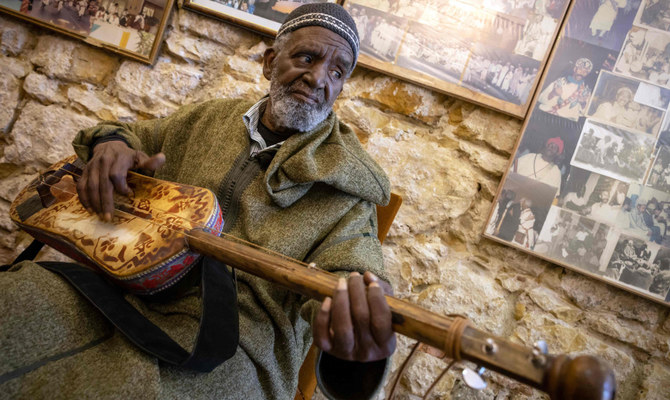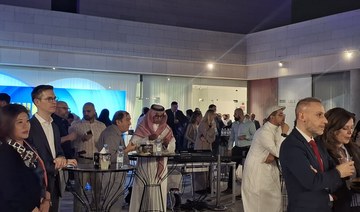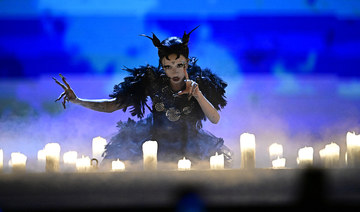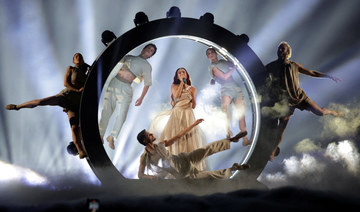TANGIERS, Morocco: The Moroccan city of Tangiers, which has a long history as a haven of inspiration for American jazz musicians, will host UNESCO’s International Jazz Day for the first time on Tuesday.
Over the last century, jazz greats such as Randy Weston, Idrees Sulieman and Max Roach all crossed the Atlantic to play and record music in the North African port city, perched on the edge of the Strait of Gibraltar.
“The city has had a fascinating power of attraction on a wave of intellectuals and musicians,” Philippe Lorin, the founder of an annual Tangiers jazz festival, told AFP.
“It’s not for nothing that a writer once said there was always a cruise liner in New York preparing to sail for Tangiers.”
This year’s Jazz Day will be held over four days starting on Saturday, during which talks and open-air performances will be held in Tangiers.
The festivities will culminate in an “All-Star Global Concert” on Tuesday led by jazz icon Herbie Hancock, also featuring bassists Marcus Miller and Richard Bona, as well as guitarist Romero Lubambo.
The city’s cosmopolitan artistic reputation stems from its location between Africa and Europe as well as its history, having been administered by several colonial powers from 1923 to 1956, the year Morocco gained independence.
This melting pot of influences prompted visits from international writers and poets, notably from the Beat Generation movement, as well as African American musicians seeking to find “their African roots,” Moroccan historian Farid Bahri told AFP.
Lorin said that Tangiers “was a haven of freedom — just like jazz music.”
A pivotal moment in the city’s musical history came in 1959, when Tangiers jazz promoter Jacques Muyal — then just a teenager — recorded a session with trumpeter Idrees Sulieman, pianist Oscar Dennard, bassist Jamil Nasser and drummer Buster Smith at the Radio Tanger International studio.
The recording gained renown in jazz circles decades before its distribution as “The 4 American Jazzmen In Tangier” album in 2017.
Bahri, the author of “Tangiers, a world history of Morocco,” said “the presence of American musicians in Tangiers was also linked to a very active American diplomacy.”
Famous US pianist Randy Weston settled in Tangiers for five years after visiting 14 African countries in 1967 during a tour organized by the US State Department.
The Brooklynite virtuoso would play a key role in building the musical reputation of the city, to which he dedicated his 1973 album “Tanjah.”
“Randy was an exceptional, kind and respectful man,” said Abdellah El Gourd, a 77-year-old Moroccan legend of gnawa music, a centuries-old style played with a three-stringed lute and steel castanets, rooted in West African rituals and Sufi traditions.
“He gave a lot to the city and its musicians,” added the friend and collaborator of Weston, who died in 2018.
Together, El Gourd and Weston blurred the lines of their respective genres, creating the beginnings of jazz-gnawa fusion, which remains a key part of Tangiers’ musical legacy.
“The language barrier was never a problem because our communication was through (musical) scales,” El Gourd recalled in a rehearsal room lined with old photos and memorabilia from the years he toured with Weston and jazz saxophonist Archie Shepp.
“Our language was music.”
The two men’s collaborative work would years later yield the acclaimed 1992 album “The Splendid Master Gnawa Musicians of Morocco.”
Two years after settling in the city, Weston opened the African Rhythms jazz club, above the iconic Cinema Mauritania in downtown Tangiers.
“We used to rehearse there,” El Gourd recalled. “Randy would invite his musician friends. It was a beautiful time.”
With El Gourd’s help, Weston launched Tangiers’ first-ever jazz festival in 1972, featuring big names such as drummer Max Roach, flautist Hubert Laws, double-bassist Ahmed Abdul-Malik, and saxophonist Dexter Gordon.
“It was quite a unique experience, because it was the first time we played in front of such a large audience,” said El Gourd, who was then used to small crowds for gnawa performances.
Weston and El Gourd’s festival was only held once.
But three decades later it inspired Lorin to create the Tanjazz festival, which is held in the port city every September.






















